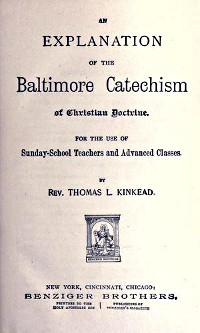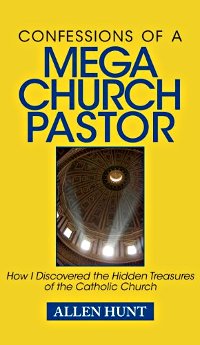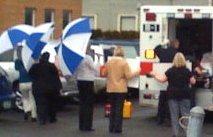
Lesson 4
This lesson treats of God bringing everything into existence. The chief things created may be classed as follows: (1) The things that simply exist, as rocks, and minerals – gold, silver, iron, etc. (2) Things that exist, grow, and live like plants and trees. (3) Things that grow, live, and feel, like animals. (4) Things that grow, live, feel, and understand, like men. Besides these we have the sun, moon, stars, etc.; all things too that we can see, and also Heaven, Purgatory, Hell, and good and bad angels. All these are the works of God’s creation. All these He has called into existence by merely wishing for them.
| *32 | Q. | Who created Heaven and earth, and all things? |
| A. | God created Heaven and earth, and all things. |
“Heaven,” where God is and will always be. It means, too, everything we see in the sky above us. “Earth,” the globe on which we live.
| *33 | Q. | How did God create Heaven and earth? |
| A. | God created Heaven and earth from nothing, by His word only; that is, by a single act of His all-powerful will. |
| 34 | Q. | Which are the chief creatures of God? |
| A. | The chief creatures of God are angels and men. |
| 35 | Q. | What are angels? |
| A. | Angels are pure spirits without a body, created to adore and enjoy God in Heaven. |
“Angels” are not the same as saints. Saints are those who at one time lived upon the earth as we do, and who on account of their very good lives are now in Heaven. They had bodies as we have. The angels, on the contrary, never lived visibly upon the earth. In the beginning God was alone. We take great pleasure in looking at beautiful things. God, seeing His own beauty, and knowing that others would have very great pleasure and happiness in seeing Him, determined to create some beings who could enjoy this happiness; and thus He wished to share with them the happiness which He Himself derived from seeing His own beauty. Therefore He created angels who were to be in Heaven with Him, singing His praises and worshipping before His throne.
The angels are not all equal in dignity, but are divided into nine classes, or choirs, according to their rank or office, and, as theologians tell us, arranged from the lowest to the highest and named as follows; angels, archangels, virtues, powers, principalities, dominations, thrones, cherubim, and seraphim. Archangels are higher than angels and are so called because sent to do the most important works. It was the Archangel Michael who drove Lucifer from Heaven and the Archangel Gabriel who announced to the Blessed Virgin that she was to be the Mother of God. The angels receive their names from the duties they perform. The word angel signifies messenger.
| *36 | Q. | Were the angels created for any other purpose? |
| A. | The angels were also created to assist before the throne of God and to minister unto Him; they have often been sent as messengers from God to man; and are also appointed our guardians. |
The duties of the angels are many. Some remain always in Heaven with God; some are sent to earth to be our guardians and to remain with us. Each of us has an angel to take care of us. He is with us night and day, and offers our prayers and good works to God. He prays for us, exhorts us to do good and avoid evil; and he protects us from dangers spiritual and temporal. How unfortunate then must one be to cause him to return to Heaven with sad complaints to God; such as: “The one whom I have in charge will not obey Thy laws or use the grace Thou sendest him: with all my efforts to save him, he continues to do wrong.” He will be doubly sad when he sees other angels returning with good reports and receiving new graces for those whom God has committed to their care. If you love your guardian angel, never impose on him the painful duty of bringing to God the report of your evil doings.
Now, how do we know that the angels offer our prayers and good works to God? We know it from the beautiful story of Tobias, told in the Holy Scripture. (Tobias). This holy man loved and feared God. He lived at a time when his people were persecuted by a most cruel king, who wished to force them to give up the true God and worship idols, but many of these good people suffered death rather than deny God and obey the wicked king. When they were put to death, their bodies were left lying on the ground, to be devoured by birds of prey or wild animals. Anyone caught burying them was to be put to death by the king’s servants. Tobias used to carry the dead bodies of these holy martyrs into his house and bury them at night.
One day when he returned very tired he lay down by the wall of his house to rest, and, while lying there, some dirt fell into his eyes and he became blind. This Tobias had a young son whose name was also Tobias; and as he himself was now blind and poor, he wished to send his son into a certain city, at a good distance off, to collect some money that he had formerly loaned to a friend. As the young man did not know the way, his father sent him out to look for a guide. Young Tobias went out and found a beautiful young man to be his guide and he consented, and he brought Tobias to the distant city. As they were on their way they sat down by the bank of a river. Tobias went into the water near the edge, and soon a great fish rushed at him. Tobias called to his guide. The guide told him to take hold of the fish and drag it out upon the shore. There they killed it, and kept part of its flesh for food and part for medicine. Then they went on to the city, got the money and returned. The guide told young Tobias to rub the part of the fish he had taken for medicine upon his father’s eyes. He did so, and immediately his father’s eyes were cured and he saw. Then both the father and son were so delighted with this young guide, that they offered to give him half of all they had. He refused to take it and then told them he was the angel Raphael sent from God to be the guide of this good man’s son. He told the old Tobias how he (the angel) had carried up to God his prayers and good works while he was burying the dead. When they heard he was an angel they fell down and reverenced him, being very much afraid. From this beautiful history we know that the angels carry our prayers and good works to God. Again we learn from the Holy Scripture (Gen. 28) in the history of another good man almost the same thing. The patriarch Jacob was on a journey, and being tired, he lay down to rest with his head upon a stone. As he lay there he had a vision in which he saw a great ladder reaching up from earth to Heaven. At the top he saw Almighty God standing, and on the ladder itself angels ascending and descending. Now the holy Fathers of the Church tell us this is what is really taking place; the angels are always going down and up from God to man, though not on a ladder and not visibly as they appeared to Jacob. Besides the guardian angel for each person, there are also guardian angels for each city and for each nation.
Again (Gen. 19) angels appeared to Lot to warn him about the destruction of the wicked cities of Sodom and Gomorrha. Angels appeared also to the shepherds on the night Our Lord was born (Luke 2). The catechism says angels have no bodies – how, then, could they appear? They took bodies made of some very light substance which would make them visible, and appeared just like beautiful young men, clad in flowing garments, as you frequently see them represented in pictures. Angels were sometimes sent to punish men for their sins, as the angel who killed in one night 185,000 men in the army of the wicked king, Sennacherib, who blasphemed God, and was endeavoring to destroy Jerusalem, God’s city. (4 Kgs. 19).
But here is a difficulty. If God Himself watches over us and sees all things, why should the angels guard us? It is on account of God’s goodness to us; though it is not necessary. He does not wish us to have any excuse for being bad, so He gives us each a special heavenly servant to watch and assist us by his prayers. If a friend received us into his house and did all he could for us himself, we should certainly be satisfied, but if he gave us a special servant, though it would not be necessary, he would show us great respect and kindness. Moreover whatever the angels do for us, we might say God Himself does, for the angels are only obeying His commands.
| *37 | Q. | Were the angels, as God created them, good and happy? |
| A. | The angels as God created them were good and happy. |
| *38 | Q. | Did all the angels remain good and happy? |
| A. | All the angels did not remain good and happy; many of them sinned and were cast into Hell; and these are called devils or bad angels. |
God did not admit the angels into His presence at once. He placed them for awhile on probation, as He did our first parents.
One of these angels was most beautiful, and was named Lucifer, which means light-bearer. He was so perfect that he seems to have forgotten that he received all his beauty and intelligence from God, and not content with what he had, became sinfully proud and wished to be equal to God Himself. For his sin he and all his followers were driven out of Heaven, and God then created Hell, in which they were to suffer for all eternity. This same Lucifer is now called Satan, and more commonly the devil, and those who accompanied him in his fall, devils, or fallen angels.






















